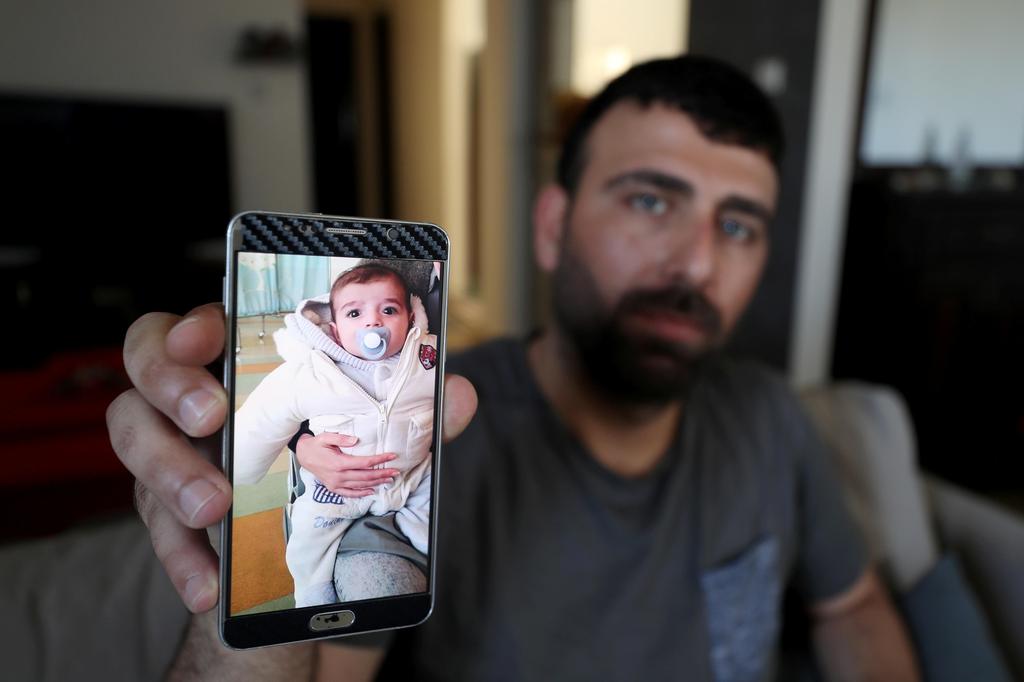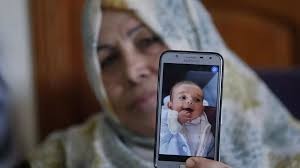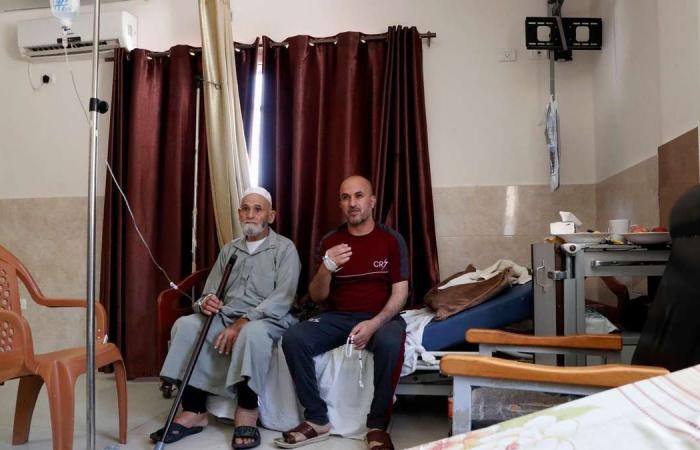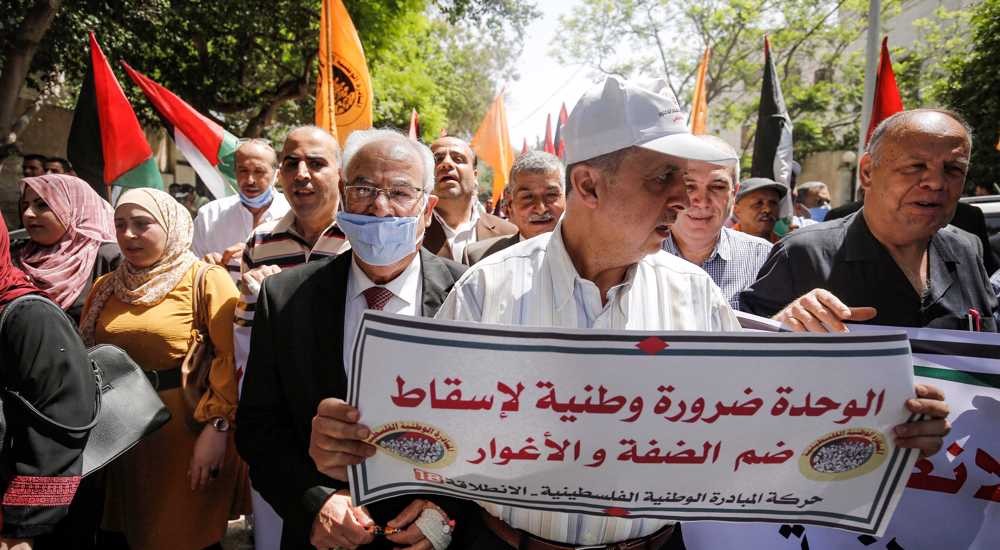Getting your Trinity Audio player ready...
Baby Omar Yaghi was eight months old when he died, unable to travel from Gaza to Israel for life-saving heart surgery after Palestinian officials cut coordination.
The baby's mother Raneen has been unable to speak or eat since losing her son last week, his uncle Mohammed Yaghi said.
4 View gallery


Ahmed Yaghi, the father of Palestinian infant Omar, who died of illness, shows his picture on his mobile phone in the central Gaza Strip
(Photo: Reuters)
They are one of a number of families caught up in a high-level dispute after the Palestinian Authority last month ended security coordination with Israel over its plans to annex parts of the West Bank.
The move has had a dramatic impact on scores of Palestinians in both the West Bank and Gaza who need Israeli paperwork to access treatment which is not available closer to home.
"Omar was supposed to undergo major surgery on May 24, but they told us that our travel to Israel was prevented because coordination was stopped," said the infant's uncle.
4 View gallery


The grandmother of nine-month-old Palestinian baby Omar Yagi displays a picture of him
(Photo: AFP)
Several human rights organizations lobbied successfully for a new date, but Yaghi died on June 18 just three days before the planned operation.
Gaza's two million residents have lived under a crippling Israeli blockade since 2007, with Palestinians having to apply for exit permits to leave the enclave.
Israel's military branch responsible for civilian affairs in the Palestinian territories, COGAT, said the Erez crossing with Gaza is "ready and well prepared" to facilitate transfers.
COGAT "keeps allowing, also at these times, an entrance of residents from the Gaza Strip for life-saving medical treatment and in other humanitarian cases," a spokesperson said in an English statement.
Yaghi was born with complex heart problems and he started treatment at Israel's Sheba Medical Center when he was just one month old.
Having been unable to return for the surgery, Yaghi suffered heart failure on Wednesday and was resuscitated at a Gaza hospital.
"They told us that the situation was very serious," said Mohammed Yaghi, who tried desperately to arrange an emergency transfer to Israel while his nephew was put on a ventilator.
"At 10:00 am, the hospital management called and told us he had died."
The boy's father, also named Omar, found out his son had not survived while he was on the way to hospital.
"My brother was completely destroyed, especially when he received the child's body," said Mohammed Yaghi.
Physicians for Human Rights Israel said the baby boy died because of the surgery delay, which was caused by the Palestinian Authority's (PA) Civil Affairs Committee ending its coordination with Israel.
"Patients have described how the Palestinian agencies in charge of coordinating their travel with the Israeli authorities stopped transferring their application for exit permits on medical grounds," said the organization, which had helped get a new operation date.
Haitham al-Hadra from the Palestinian health ministry, who is in charge of medical transfers, said he remained "categorically" committed to the PA's decision to stop working with the Israelis.
"We do not even pick up the phone or answer emails," he said.
According to the health official, since the PA's decision, some Palestinians have accessed treatment in Israel by coordinating with authorities directly.
Hadra said the majority of patients can get treatment within the Palestinian territories.
"Ninety-five percent of medical conditions can be treated in Palestinian hospitals, whether government or private ones," he told AFP.
But not everyone can arrange their own transfers or afford costly treatment.
Hala al-Johari, 58, has not had her leukemia treatment for nearly a month and a half.
Living in Nablus in the northern West Bank, Johari had traveled to Jerusalem over the previous eight months for cancer treatment at the city's Hadassah Hospital Ein Kerem.
The PA had been picking up the bill, but without their support, she can't afford the 1,000 shekels ($290) for her daily pill or the $100 weekly transport costs.
Cancer patients protested on Wednesday outside the Palestinian government office in the West Bank city of Ramallah, and days later Johari received some good news.
"They called me yesterday and told me that there will be enough medicine for a month," she said.
But with no end in sight to the rift between Palestinian and Israeli officials, Johari and other patients are unsure when they will reach hospital.
"I am in an uncertain world, the lack of medicine makes me nervous and leaves me constantly afraid," said Johari. "I don't want to die."



